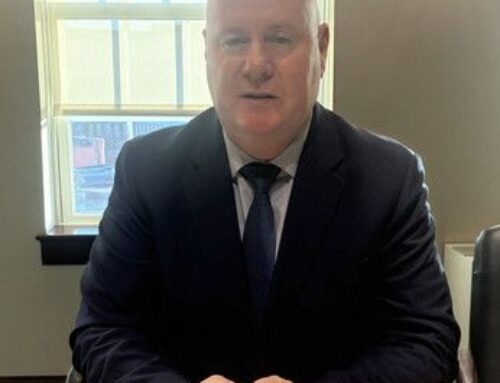3 Investing Lessons From Warren Buffett’s November Letter to Berkshire Hathaway Shareholde
November 15, 2025
Warren Buffett shares kernels of wisdom with less than two months remaining until his partial retirement.
At Berkshire Hathaway‘s (BRK.A 0.70%) (BRK.B 0.80%) annual meeting of shareholders in May, Warren Buffett announced that he would remain chairman but would be passing the role of chief executive officer to Greg Abel, who runs Berkshire’s non-insurance operations.
Since the announcement, Berkshire stock has fallen while the S&P 500 has roared higher — suggesting some investor concerns about the company’s future. On Nov. 10, to perhaps allay those concerns, Buffett published an eight-page letter to shareholders.
In addition to announcing donations to four family foundations and to share that he would no longer be writing annual letters or speaking at Berkshire’s annual meetings, he also offered some words of investment advice.
Here are three key investing lessons from Buffett’s letter to help you on your financial journey and navigate markets at all-time highs.

Image source: Getty Images.
1. Limited opportunities in today’s market
Buffett may be retiring as CEO of Berkshire Hathaway, but he is still going into his Omaha, Nebraska, office five days a week. Those routine office hours stem from dedication to Berkshire, not because Buffett is bursting with investment ideas. To quote the Nov. 10 letter: “Occasionally, I get a useful idea or am approached with an offer we might not otherwise have received. Because of Berkshire’s size and because of market levels, ideas are few — but not zero.”
In Berkshire’s latest quarter, its position in cash, cash equivalents, and Treasury bills surged to an all-time high of $382 billion. If Berkshire’s cash pile were a publicly traded company, it would be roughly the size of Bank of America, the second most valuable major U.S. bank behind JPMorgan Chase.
2. Berkshire is a very “safe” company
Berkshire has been a net seller of stocks in recent quarters and hasn’t repurchased Berkshire stock for five consecutive quarters. It’s not just that Buffett and his team see few opportunities in today’s premium-priced market. Rather, Berkshire’s caution stems from Buffett’s goal of safeguarding investors’ savings while avoiding unnecessary risk. He wrote:
In aggregate, Berkshire’s businesses have moderately better-than-average prospects, led by a few non-correlated and sizable gems. However, a decade or two from now, there will be many companies that have done better than Berkshire; our size takes its toll. Berkshire has less chance of a devastating disaster than any business I know. And, Berkshire has a more shareholder-conscious management and board than almost any company with which I am familiar (and I’ve seen a lot).
This was Buffett’s way of reassuring investors that Berkshire isn’t going to chase red-hot stocks, but rather, stick to making measured decisions, even if that means being a contrarian investor in this bull market currently driven by artificial intelligence growth stocks.

Berkshire Hathaway
Today’s Change
(-0.80%) $-4.13
Current Price
$508.98
3. Buffett is confident in his successor
Buffett emphasized his confidence in Greg Abel to take over as CEO:
Greg understands, for example, far more about both the upside potential and the dangers of our P/C [property and casualty] insurance business than do a great many longtime P/C executives. My hope is that his health remains good for several decades. With a little luck, Berkshire should require only five or six CEOs over the next century. It should particularly avoid those whose goal is to retire at 65, to become look-at-me rich or to initiate a dynasty.
Throughout the letter, Buffett discussed the importance of relationships, the benefits of a community feel in Omaha, and the value of hard work over money and accolades. In other words, he isn’t looking for leaders who want to capitalize on C-suite compensation packages, but rather who believe in Berkshire’s mission and values.
Berkshire remains an elite value stock that investors can trust
Berkshire’s track record is an excellent example of the power of compounding over an extended period by investing in what you know and understand. In the past, some of its most significant opportunities came from public companies — like buying Coca-Cola and American Express decades ago or with Berkshire’s massive accumulation of Apple stock from 2016 to 2018.
In today’s environment, Berkshire is mostly reinvesting in its controlled businesses — namely, the insurance arm, growing Berkshire Hathaway Energy and BNSF railroad, and its various manufacturing, retail, and service companies.
That doesn’t mean individual investors shouldn’t be buying stocks. But it is a reminder to consider valuations as a measure of investor expectations. A great company at an expensive price can still be worth buying if it delivers consistent long-term earnings growth. But a company priced for perfect results could be vulnerable to a steep sell-off if actual results disappoint.
Buffett’s latest letter reinforces the value in playing the long game by being patient and investing in quality companies rather than chasing quick returns.
Search
RECENT PRESS RELEASES
Related Post



